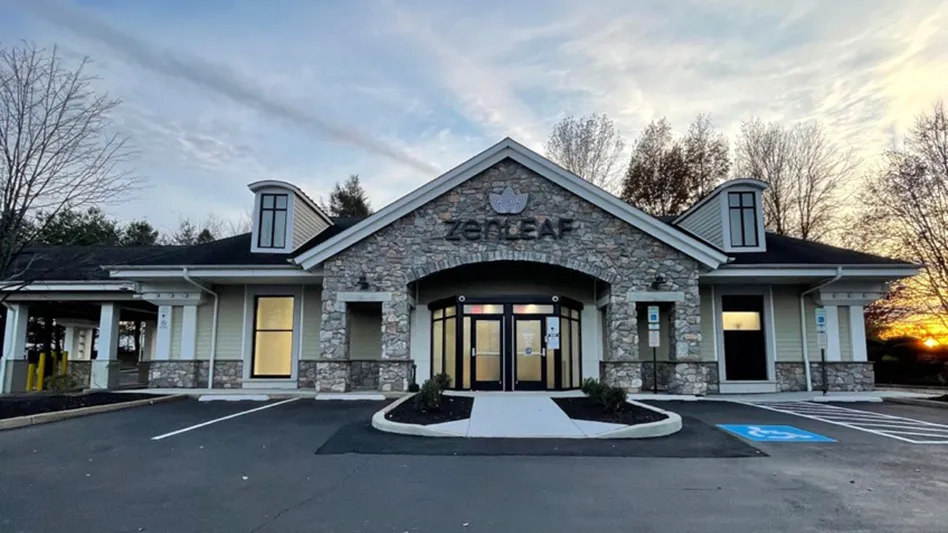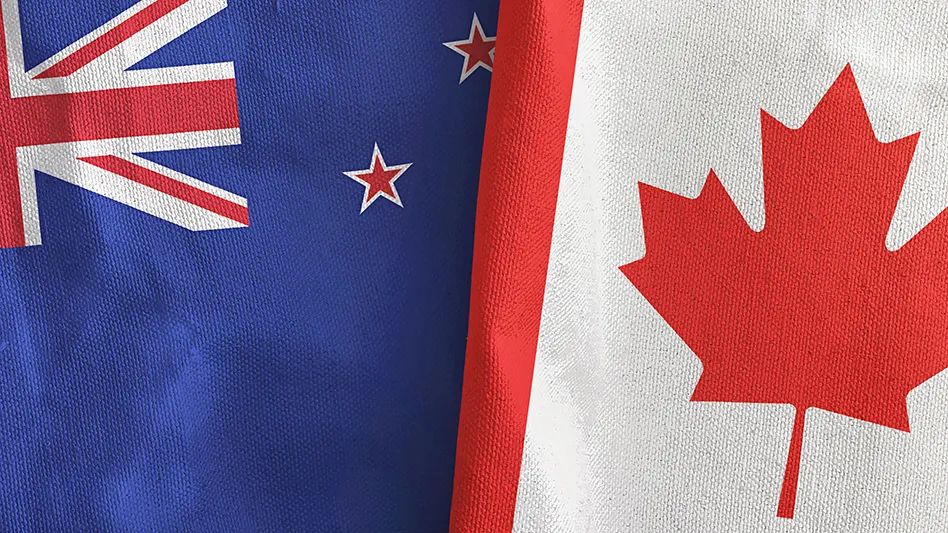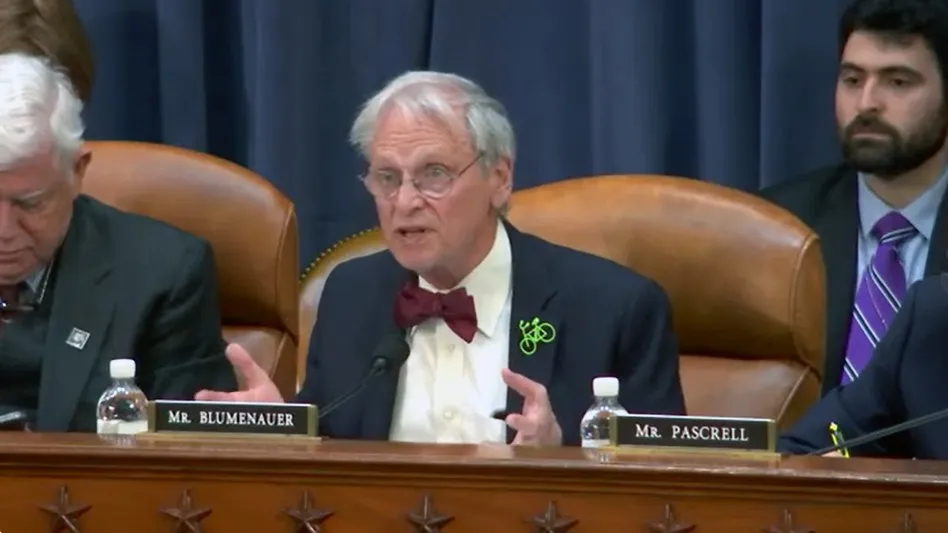
frank peters | Adobe Stock
Editor's note: This article was updated at 10:45 a.m. ET on Tuesday, July 11, to include comments from Bloomwell Group co-founder and CEO Niklas Kouparanis.
It’s been nine months since Germany’s initial plans to legalize adult-use cannabis leaked to the media in October 2022, and last week, officials published a draft bill that would officially lift the country’s prohibition on cannabis for personal use.
The Ministry of Health unveiled legislation July 5 for the first pillar of a two-pillar approach to legalization, according to Forbes.
The draft bill aims to regulate the personal use and home cultivation of cannabis, as well as authorize the establishment of cannabis growers’ associations that mirror a previously proposed cannabis social club model, the news outlet reported.
The legislation would remove cannabis from the Narcotics Drugs Act and other related laws, according to Forbes. The bill does not change Germany’s existing medical cannabis laws, the news outlet reported, although the proposal would allow patients to obtain a regular cannabis prescription rather than a specialized narcotic prescription.
The bill would allow adults 18 and older to possess up to 25 grams of cannabis and grow up to three plants for personal use. The proposal would prohibit the consumption of cannabis near minors under the age of 18, as well as within a 200-meter radius of schools, children’s and youth facilities, playgrounds, public sports facilities, and pedestrian zones between the designated hours of 7 a.m. to 8 p.m., according to Forbes.
Cannabis growers’ associations would be able to accept up to 500 members, who would be eligible to receive either 25 grams of cannabis per day or 50 grams per month for personal use, the news outlet reported.
The bill would also permit the associations to provide members with up to seven cannabis seeds or five cuttings per month, according to Forbes.
Members would not be allowed to consume cannabis inside the associations’ facilities under the legislation, the news outlet reported, and the associations would not be permitted to advertise.
The draft legislation would authorize Germany’s state governments to draft ordinances to regulate the number of associations in a district or city, Forbes reported, but the bill would set a maximum limit of one association per 6,000 residents.
Germany legalized medical cannabis in 2017, and a leaked “cornerstone paper” was circulated among government officials last fall.
The paper, which stemmed from a months-long inquiry by Burkhard Blienert, Germany’s commissioner on narcotic drugs, outlined plans to decriminalize the purchase and possession of up to 20 grams of cannabis for adults, as well as legalize the cultivation of up to two plants at home. That proposal also placed a 15% cap on THC, as well as a 10% THC limit for young adults aged 18 to 21.
In April 2023, six months after the cornerstone paper leaked, German officials unveiled new adult-use legislation that scaled back sales through licensed shops and instead allowed for home cultivation and distribution through nonprofit organizations called “cannabis clubs.”
RELATED: Germany Announces Revised Approach to Cannabis Legalization
That legalization plan stemmed from Berlin’s talks with the EU’s executive commission, and disappointed industry stakeholders at the time.
“The latest news on the postponement of full-scale adult-use cannabis legalization shows that cannabis is still stigmatized and the double standard that exists around the world, especially when compared to the legalization of alcohol,” Niklas Kouparanis, CEO of German medical cannabis operator Bloomwell Group, said in a public statement in April. “Decriminalization is not legalization. Penalties for cannabis will be significantly relaxed in the future, but decriminalization does not take away the fact that cannabis will still be deemed a narcotic.”
Kouparanis is more optimistic about the latest legislation released last week.
"Now it's official: The Ministry of Health no longer wants to classify cannabis as a narcotic," he said in a public statement. "With this reclassification, a new era of progressive and solution-oriented drug policy is beginning in Germany after decades of stigmatization. This is good news, especially for existing and potential cannabis patients. If medical cannabis is no longer considered a narcotic, we can reduce logistical hurdles and costs for production, storage, distribution and delivery. The administrative roadblocks for prescribing doctors will also be eased. Germany can act as a role model for other EU member states, setting an example for progressive medical cannabis policies."
The German cabinet is expected to approve this latest legalization proposal by August, according to Forbes, and at that time, the Bundestag, Germany’s federal parliament, will consider approving the legislation.
"In the future, a comprehensive, licensed adult-use market remains the ultimate goal," Kouparanis said. "Germany is currently planning to introduce highly regulated nonprofit associations, or cannabis clubs, that will be able to cultivate and distribute cannabis to adult members. While these cannabis clubs will not be able to fulfill the long-term consumer demand, the good news is that we’re still taking steps forward. However, the implementation of all of these progressive policies will depend on the Bundestag passing the current legislation draft within the next few months. After more than a year and a half of intense debate, the traffic light government should not wait any longer—they need to pass the law to expand the market and expand access.”
Draft legislation for the second pillar of Germany’s legalization plan is expected to be published during the second half of this year, after it is reviewed by the European Commission, according to Forbes. That bill will tackle regulations for regional pilot programs with commercial supply chains, the news outlet reported.
Join us this year at the Paris Las Vegas Hotel & Casino for Cannabis Conference, the leading education and expo event for plant-touching businesses.
Latest from Cannabis Business Times
- Cannabis Rescheduling: Where Do We Go From Here?
- Verano Opens MÜV Haines City, Company’s 75th Florida Dispensary
- Ascend Wellness Holdings Reports $142.4M Net Revenue for Q1 2024
- Trulieve Reports $298M in Revenue for 1st Quarter 2024
- SNDL Reports 1st Quarter 2024 Financial, Operational Results
- Leading Cannabis Brand STIIIZY Expands Retail Presence With Fresno Location Opening Saturday, May 11
- The Cannabist Co. Reports 1st Quarter 2024 Results
- Green Thumb Reports $276M Revenue for 1st Quarter 2024





